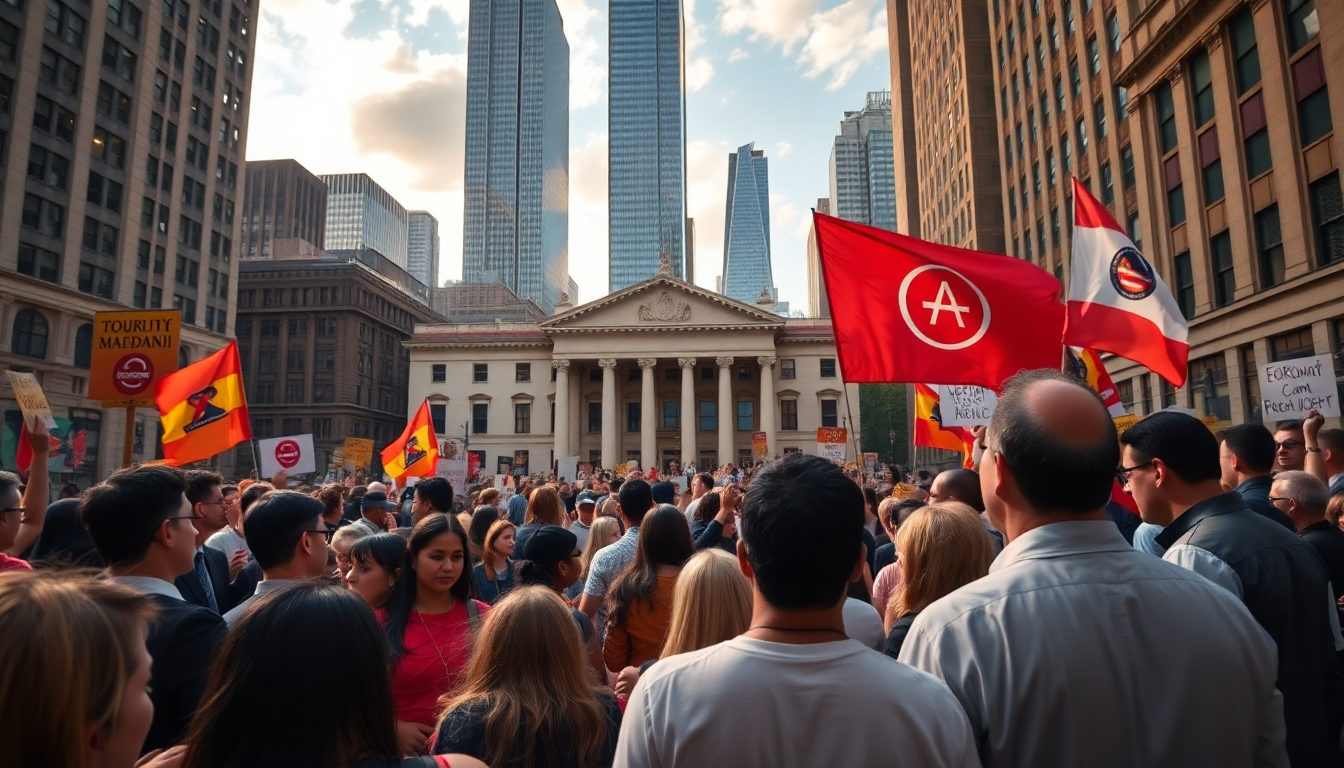Table of Contents
New York City’s political landscape is experiencing a fascinating shift, especially with the rise of candidates like Zohran Mamdani, who boldly champion socialist policies. His recent bid for mayor has sparked lively discussions about what this radical agenda means for a city grappling with income inequality. But here’s the kicker: some of the wealthiest residents are backing him. What could their motivations be, and how might this affect the city’s socioeconomic dynamics?
Financial Backing from Unexpected Places
Traditionally, you might think that socialism would scare off wealthy donors, but Mamdani is proving otherwise. He’s managed to attract significant financial support from various high-net-worth individuals, creating a curious contradiction within New York’s elite. It’s noteworthy that affluent backers are publicly endorsing policies that aim to tax the wealthy to fund extensive social programs. Take James Hueston, a venture capitalist, for instance. He’s part of a group dubbed the “Mamdani Millionaires,” and he believes that paying higher taxes is not just a civic duty but a moral obligation to help those in need. This perspective suggests that these measures are about financing beneficial policies rather than being punitive.
This trend highlights a shifting mindset among some wealthy New Yorkers, who seem ready to part with a portion of their wealth for the greater good. In fact, data shows that about a third of the city’s wealthiest residents backed Mamdani in the primary election. This marks a notable political realignment within this demographic. However, the anonymity of many donors from sectors like Wall Street and the legal field adds a layer of complexity to the story, revealing a tangled web between wealth and progressive politics.
Support from Prominent Business Leaders
Mamdani’s endorsement isn’t just coming from venture capitalists; it also includes successful entrepreneurs and business leaders. Ahmed Haque, founder of Didactic Labs, emphasizes the vital role of small businesses in immigrant communities, highlighting how they serve as a crucial pathway to upward mobility. His support for Mamdani indicates a growing recognition that progressive policies can actually work hand-in-hand with a healthy economy, challenging the stereotype that such candidates would stifle business growth.
Moreover, figures like Bradley Tusk, who once managed Michael Bloomberg’s campaign, have publicly endorsed Mamdani, encouraging New Yorkers to unite behind him. This coalition of wealthy supporters signals a changing paradigm where economic interests and social responsibility are becoming increasingly intertwined. The backing from individuals with substantial financial clout suggests a broader acceptance of the idea that social equity can actually bolster economic stability.
Addressing Concerns and Critiques
With all this enthusiasm, Mamdani isn’t without his critics. Many label him a threat to the business community, fearing his policies could disrupt New York’s economic landscape. Yet, supporters argue that he understands the importance of private sector involvement in tackling the housing crisis. In fact, Mamdani has expressed a willingness to explore solutions that increase the private housing supply.
Kathy Wylde, president of the Partnership for New York City, shared a conversation with Mamdani where he acknowledged the need for private investment to address urgent urban issues. His pragmatic approach suggests that effective governance requires collaboration between public and private sectors, challenging the stereotype of a socialist candidate as solely anti-business.
Conclusion: A New Era in NYC Politics
The emergence of candidates like Zohran Mamdani marks a pivotal moment in New York City’s political dialogue. As support from affluent individuals continues to shape the conversation around socialism, understanding the underlying motivations and potential repercussions of these endorsements becomes crucial. The evolving relationship between wealth and progressive policies hints at a new era where traditional political boundaries are being redefined, paving the way for innovative solutions to the city’s most pressing challenges. Are we witnessing the dawn of a new political landscape in NYC?


